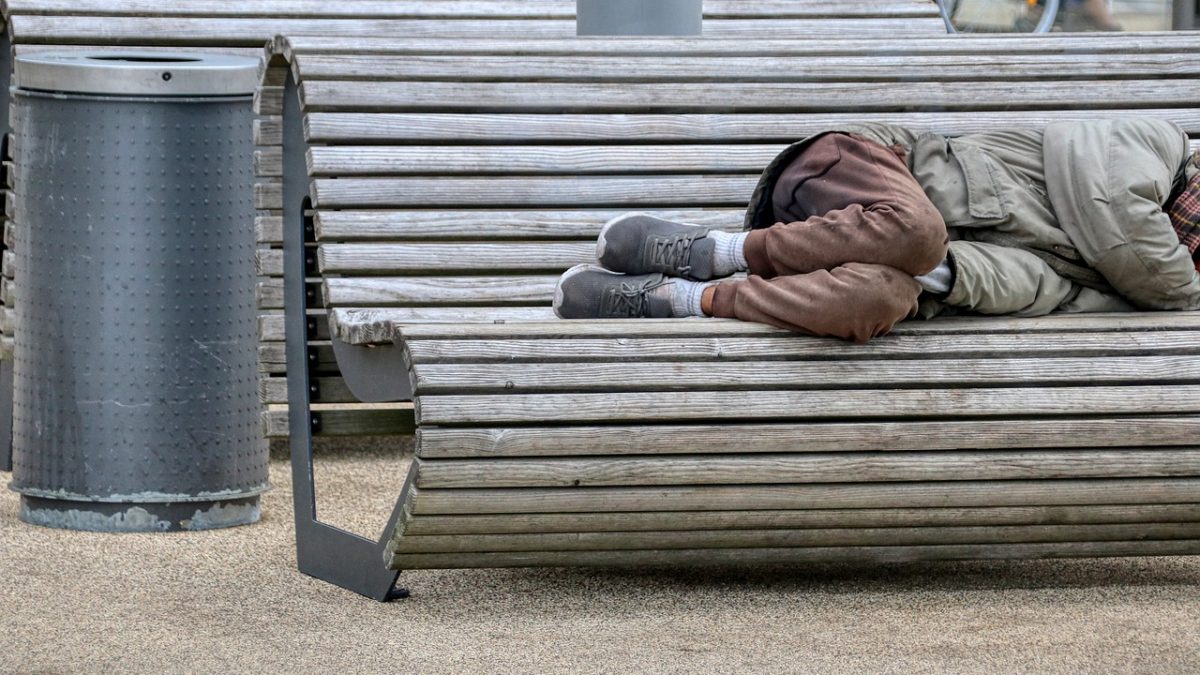Croatia needs to provide stronger and more significant support to the homeless, one of the most vulnerable groups in our society. This should include the protection of their rights, as well as, ideally, the provision of the support necessary to pull themselves out of homelessness and greater efforts invested into preventing the situations where people are left without a shelter. The World Homeless Day, observed on October 10th, represents an opportunity to raise awareness about these issues.
The exact number of homeless persons in Croatia is not known, but due to the increase in the basic living costs, especially the large increase in apartment rental prices, a greater number of people are at risk of becoming homeless. At the same time, the concept of homelessness currently in use in Croatia does not include all those who live in unsafe and completely inadequate living conditions. The consequences of climate change also have an impact in this area – storms and extreme heat, which have already become our reality, particularly endanger those living on the streets and make the need for the provision of safe housing ever more pronounced.
At the same time, Croatia does not have a housing strategy nor a social housing policy. The Ombudswoman has also raised this issue in her comments on the Bill on the Management of Real Estate and Movable Property Owned by the Republic of Croatia.
“What does it mean to be homeless?
The homeless face obstacles in accessing many of their rights, and they are often invisible to decision-makers and citizens. They are stigmatized and exposed to prejudice: for instance, in the Ombudswoman’s survey on the perceptions and the occurrences of discrimination every fifth respondent was of the opinion that the homeless were to blame for their situation.
Many homeless people cannot access healthcare, most often because they do not have regulated residence. Additionally, some of the regional offices of the Croatian Institute for Social Work, formerly known as Centers for Social Welfare, sometimes refuse to register them at their address, so they cannot regulate their place of residence . This perpetuates a vicious cycle, as having a registered address is essential for obtaining basic documents and rights.
It is crucial to strengthen interagency cooperation among the public authorities and between the public authorities and the local and regional ones. Local authorities, in particular, need to provide systematic support to the homeless, which some currently do not do. Not all major cities and county seats, as required by the Social Welfare Act, have shelters for the homeless, even though they are obligated to allocate resources for them.
Regrettably, homeless individuals often remain in ‘temporary accommodation’ for over a year, partly due to the lack of a housing strategy and social housing policy.
Non-governmental organizations and religious communities provide strong support to the homeless and play an important role in working with them. Unfortunately, the tenders through which they fund their work with the homeless are not long-term, and can also be delayed, which leads to interruptions in the funding of the homeless support programs.
It is also necessary to abandon the practice of punishing the homeless when they beg for food or sleep on the street, for example when there is no place to stay, which are situations that they often cannot avoid in their life circumstances. The Ombudswoman will advocate for this change through membership in the working group for the drafting the new Act on the Offenses Against Public Order and Peace.
Ombudswoman’s recommendations with regard to homelessness
What’s next? Implementation of the recommendations from the Ombudswoman’s 2022 Annual Report for would contribute to the better protection of the rights of the the homeless, stronger support when it comes to escaping homelessness, but also to its prevention.
To the Ministry of Labor, Pension System, Family, and Social Policy:
- to develop a National Strategy to Combat Homelessness
- to establish a Protocol outlining the responsibilities of all relevant stakeholders in protecting the rights of the homeless
- to ensure longer-term and timely funding of the activities aimed at assisting and supporting the homeless
- in cooperation with the Croatian Institute for Social Work, to keep records on the number of homeless people (in accordance with the definition of homelessness as set by the new Social Welfare Act)
To the Ministry of Spatial Planning, Construction and State Property:
- to develop a Housing Strategy that would encompass all socially vulnerable groups and to include in its drafting of all relevant public authorities dealing with the issue of housing, local and regional authorities, civil society organizations, professional chambers, and associations.
Unfortunately, the Opinion of the Government of the Republic of Croatia on the Ombudswoman’s 2022 Annual Report does not contain any feedback on the recommendations in question.


